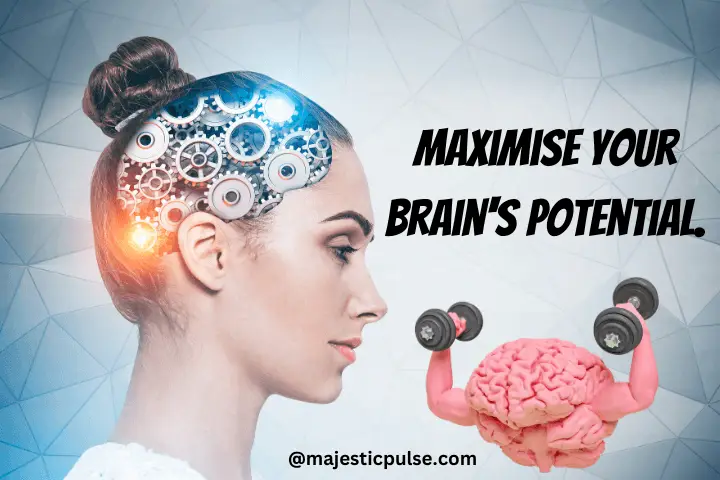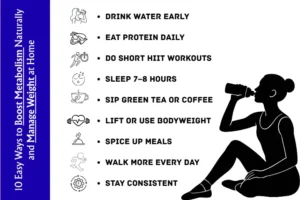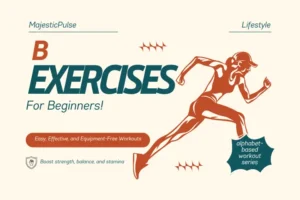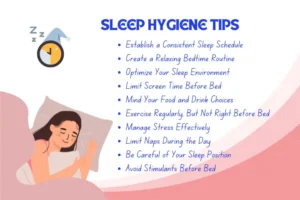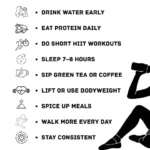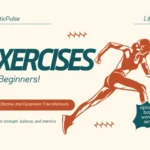We are living in the age of rapid transition and it is quite essential to keep our mind active, agile and sharp to keep up with this transiting world. The most powerful method to boost the vital mind activities like improved memory, enhanced cognitive functions and upgraded mental activity is to engage in the targeted brain exercises. This comprehensive guide will provide you with the 7 brain exercises to strengthen your mind, integrated with your lifestyle seamlessly. It will also answer your curiosities like “which exercises make the mind strong?” or “how can I use my brain 100 percent?”, but you will have to read it thoroughly from start to end, if you want the expert guidelines and practical insights to explore your true cognitive potentials. Let’s answer some of the most common questions about brain exercises to strengthen your mind.
Read more on: https://majesticpulse.com/exercises-that-start-with-e/
Why Mental Exercises Are Good for You?
Mental exercises aren’t just beneficial for your brain—they offer a range of practical advantages that can positively impact your daily life. Here are some unique and engaging reasons why they’re so essential:
-
Enhance Cognitive Function
Regular mental exercises, such as puzzles, memory games, and cognitive training, help improve memory, attention, and problem-solving skills. Sharpening these abilities keeps your mind agile and prepared for life’s challenges, helping you think more clearly and quickly in everyday situations.
-
Reduce Mental Fatigue
Just as your body needs rest after physical exertion, your brain also requires recovery from mental strain. Engaging in mindful activities or light mental exercises gives your brain the break it needs, reducing mental burnout and boosting productivity throughout the day.
-
Improve Emotional Regulation
Practices like emotional labeling or meditation help you recognize and process emotions effectively. By engaging in mental exercises, you gain better control over emotional responses, which leads to reduced stress, less impulsivity, and enhanced emotional resilience.
-
Boost Self-Awareness
Mental exercises like journaling or self-reflection encourage deep self-awareness. Understanding your thoughts, behaviors, and emotional patterns allows you to make more conscious decisions, leading to healthier relationships and personal growth.
-
Enhance Creativity
Exercises that challenge your brain, such as visualizing or brainstorming new ideas, stimulate creativity. By keeping your mind engaged, you increase your ability to think outside the box and come up with innovative solutions in both personal and professional settings.
-
Promote Mind-Body Connection
Many mental exercises—such as yoga, meditation, or deep breathing—also engage the body. These practices foster a strong mind-body connection, improving your ability to handle stress physically and mentally, reducing tension, and improving overall well-being.
-
Support Long-Term Brain Health
Just as physical exercise keeps your body strong, mental exercises protect your brain from cognitive decline. Regular mental workouts can reduce the risk of conditions like Alzheimer’s and dementia by maintaining neural connections and improving brain plasticity.
-
Boost Confidence and Resilience
Regularly practicing mental exercises, especially those focused on positive thinking, goal-setting, and mindfulness, fosters a mindset of growth and resilience. You’ll feel more confident in handling difficult situations, knowing you have the mental tools to cope with challenges.
Incorporating mental exercises into your routine doesn’t just boost brain function—it enriches your emotional life, enhances creativity, and contributes to overall personal growth and resilience.
Which Exercise Make the Mind Strong?
Let’s have a look at 7 mind excercise to strenghen your brain:
1-Crossword Puzzles and Sudoku
The first and foremost brain exercise to strengthen your mind are Sudoku and Crossword puzzles; both have been recognized as the most reliable and powerful tools to strengthen your mind activities. They are an amazing combination of satisfaction and challenge, work just like an intellectual stimulus, and enhance our cognitive abilities. The grid-based structure and logical number placement of Sudoku engages our problem-solving skills, pattern recognition and critical thinking. It also addresses your concern “which exercises make the mind strong?”, in the best way as it trains our mind to work in an organized & structured way and helps to boost our analytical and decision-making skills.

On the other hand, the crossword puzzles deal with or linguistics, they demand our aptitude and inclination to play with words and a strong vocabulary. The solving-clues of crossword puzzles are just like mental gymnastics that requires a sophisticated grasp of language and the ability to mentally manipulate concepts. Both puzzles are the best brain exercises to strengthen your mind as their basic purpose is to urge the mind to use deductive reasoning, evaluate multiple opportunities and possibilities and think laterally. Playing Sudoku and crosswords on a regular basis will not only train your mental activities regularly but also inspires your sense of achievement leading to boost your confidence and feeling of intellectual success.
2-Nutrition and Foods That Boost Your Brain Activities
Our brain activities and cognitive functions are significantly impacted by the food we consume. Improving one’s cognitive abilities begins with making dietary changes that include brain-boosting foods. Flavonoids is a compound that plays an important role in improving memory and protect our brain against cognitive decline, and this chemical is found in abundance in berries like blueberries and strawberries.

Omega-3 fatty acids, lipids essential for proper brain function, are found in abundance in fatty fish like salmon, mackerel, and trout. They promote the structure of brain cells and help communication between neurons. Besides that, antioxidants, vitamins, and minerals found in leafy greens like spinach and kale provide fuel for the brain and help defense against memory loss and dementia. Vitamin E, found in nuts, seeds, and whole grains, has been linked to a reduced risk of cognitive impairment in the elderly.
In short, adopting a diet high in these brain-boosting foods provides the nutrition your brain needs to work at its best, leading to enhanced cognitive abilities like memory and focus.
How Can I Sharpen My Mind?
3-Memory Games and Techniques
Having a sharp mind is a blessing and most of us often think “how can I sharpen my mind?” Enhanced memory has a key role in sharpening your mind and developing & strengthening your cognitive skills. If you want to enhance and improve your brain’s capacity to store and retrieve information, you should participate in memory-boosting games and should take part in activities that aim to boost your memory. Different memory games like card matching, puzzle-solving and playing with mnemonic devices challenge your brain to actively store and retrieve data, hence sharpen your cognitive acuity. Memory boosting techniques like mnemonic devices are brain exercises to strengthen your mind; they work just like the powerful tools to enhance the memory retention.
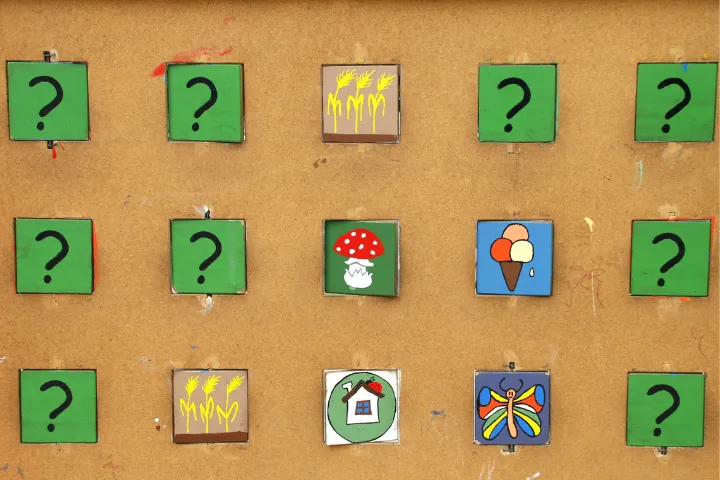
Mnemonic devices are actually memory aids that make it easy how to retain and retrieve something easily by creating strong creative visual connections between newly learned things with the materials already stored in mind. According to mnemonic theory, vivid mental images and their association with familiar ideas, already stored in mind, may have a dramatic effect in memory retention and retrieval. You may improve your memory capacity, mental agility, and sharpness with the help of regular practice of memory games and techniques, giving you the edge, you need to take on cognitive difficulties with ease and confidence.
4-Apps & Tools for Brain Training
The proliferation of cutting-edge brain training apps and tools in the modern digital age has made it possible to significantly improve our cognitive abilities. Brain training apps & tools have become one of the best brain exercises to strengthen your mind. These apps offer a wide variety of mental workouts that test your memorization, focus, and problem-solving abilities. There are different types of apps like Lumosity, Elevate, and Peak that offer individualized training plans tailored specifically to target and strengthen your cognitive weaknesses. They also offer specialized features like tracking your progress over time, in this way you can keep an eye on the improvement of your mental abilities.
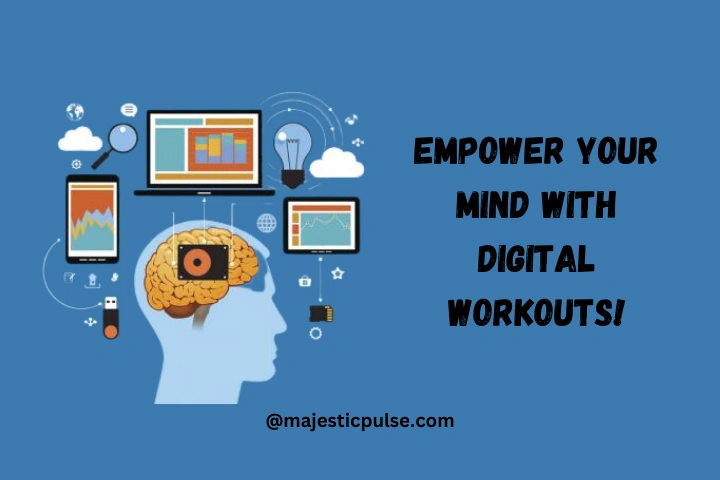
Besides that, these apps also incorporate gamification features, and convert the process of your mental exercises into a funny and interesting experience. Furthermore, the specialized brain training tools like Brainwave entertainment devices are a kind of specialized tools that uses audiovisual stimulus to synchronize brainwave activity, similar to how certain just like how the video games work. The regular use of these online apps and tools will provide a fine tune to your mental abilities and result in a sharp and more agile mind, making you able to tackle all your mental challenges more confidently and precisely.
How Can i Use My Brain 100 Percent?
5-Meditation and Mindfulness Practices
Another important question that most of the people want to get answer for is “How can i use my brain 100 percent?” The answer lays in meditation and mindfulness practices. Meditation and mindfulness practices, as the best brain exercises to strengthen your mind, have gained profound importance in today’s hectic and fast-paced environment. So, what is mindfulness? Mindfulness is to live in the present moment, to acknowledge and understand your feelings and thoughts without judging them. Its basic purpose is to gain self-awareness that allows you to create a clear and straightforward mind to navigate through your life.

On the other hand, meditation is a method that aims to bring about calm, concentration, and inner peace through a systematic approach. It utilizes different vital techniques like deep breathing, guided imagery, and repetition of mantra. The basic purpose of both mindfulness and meditation is to enhance cognitive functions so as to use them 100% with full potentials. So, if you want to establish a peaceful mental sanctuary, you should spare sometime from your daily routines and spend that time on these activities. The clear mental sanctuary will result in improved concentration and emotional health.
In a nutshell, exercising mindfulness and meditation techniques on a regular basis improve your mental health in a variety of ways like reduction in anxiety, improvement in memory retention, and promote a balanced and positive outlook on life.
6-Mental Curiosity & Consistent Learning
The foundation of a quick and nimble mind is a lifelong commitment to learning and intellectual curiosity. The commitment to lifelong learning expends your horizons, helps you to acquire new skills, develop your abilities, and discover new areas of interest. In this way, it keeps your mind engaged and busy and sharpen your mental capabilities. There are different forms of learning; reading, going to seminars, enrolling in classes, and actively seeking out new experiences, all are great ways to actively stimulate brain activity, establish neural connections, and develop a richer awareness of the world.
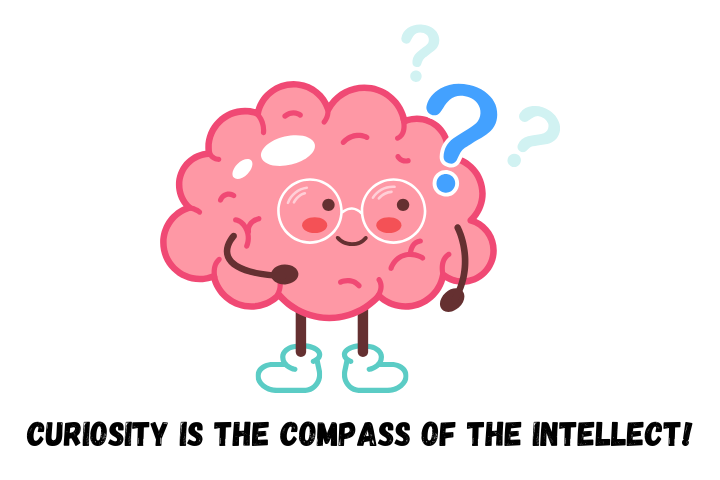
Metal curiosity for difficult ideas and subjects motivates you to learn more and dig deeper in your quest for solutions. Moreover, it promotes higher-order thinking and problem-solving abilities by stimulating innovation in cognitive capabilities. So, if you want to improve your flexibility and resilience, taking on new challenges and expanding your worldview is a way place to start. A deep quest for knowledge and mental curiosity to know more empower your intellectual approach enthusiastically and determinedly and thus create a mind that enjoys to discover new things.
How Can i Improve my Weak Brain?
7-Physical Exercise and Cognitive Health
The hustle and bustles of life have severe effect on our brain health and most of us often think “How can i improve my weak brain?” The answer of this question lies in regular physical exercise. There is strong relationship between physical exercise and cognitive functions as both are interdependent. Regular physical exercise has several positive benefits for not only your body but also for your brain as it plays a vital role in improving your mental activities.
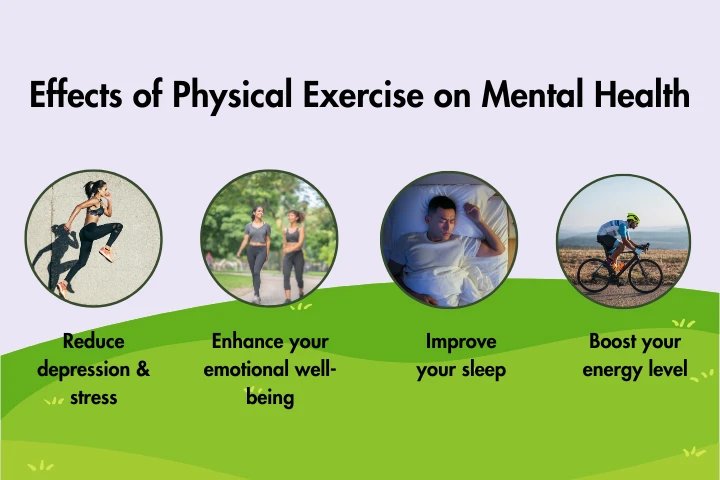
Intense physical activity increases the supply of oxygen-rich blood to the brain, which in turn stimulates the development of new neurons. In this way, physical exercises prove to be the best brain exercises to strengthen your mind and result in improved brain functions such as better memory, better attention span and better problem-solving skills. Furthermore, exercising regularly also stimulates the release of some vital neurotransmitters like dopamine and serotonin that has the basic role in regulating your mood and overall mental well-being. Different physical activities like yoga, aerobic exercises and even daily walks promote healthy brain and provide the groundwork for enhanced cognitive performance.
In short, if you make regular exercise a part of your daily routine, it will not only strengthen your body but also boost your cognitive abilities so that you can tackle mental activities more clearly and efficiently.
Conclusion
These seven mental exercises are the best brain exercises to strengthen your mind and have been shown to improve memory, focus, and concentration, as well as general mental health. Each technique, from puzzles and memory games to mindfulness practices and physical exercise, offers a unique way towards a stronger and sharper mind. Keep in mind that maintaining your mental health requires a consistent effort and sincere dedication. Get started on your cognitive empowerment path and use all the capabilities of your wonderful brain. Doing so will increase not just your brain power, but also your happiness and satisfaction with life.
FAQs
1. How Does Exercise Benefit Mental Health?
Exercise offers numerous mental health benefits by enhancing physical well-being and positively influencing the brain:
- Reduces Stress: Physical activity lowers cortisol levels, the hormone responsible for stress, promoting a sense of calm.
- Boosts Mood: Exercise stimulates the release of endorphins, chemicals in the brain that improve mood and alleviate feelings of depression and anxiety.
- Improves Sleep: Regular physical activity regulates your sleep-wake cycle, making it easier to fall asleep and stay asleep.
- Enhances Cognitive Function: Activities like running or yoga boost blood flow to the brain. They also improve focus, memory, and overall cognitive performance.
2. Can Mental Exercises Improve Mental Health?
Yes, mental exercises strengthen your brain and enhance emotional well-being. Here’s how:
- Improves Memory: Activities like puzzles or memory games enhance short-term and long-term memory retention.
- Enhances Problem-Solving Skills: Cognitive games and challenges improve critical thinking and decision-making abilities.
- Reduces Anxiety: Practices such as mindfulness exercises or guided meditation calm racing thoughts and lower anxiety levels.
- Increases Emotional Resilience: Journaling and gratitude exercises promote self-awareness and emotional strength.
3. What Type of Exercise Helps Relieve Mental Stress?
Various types of exercises can effectively alleviate mental stress by relaxing the body and calming the mind. Here are some proven methods:
- Mindfulness Exercises
Mindfulness involves focusing on the present moment without judgment. Practices like mindful breathing or body scans encourage you to connect with your body and mind. They also help to reduce stress and promote relaxation. - Cognitive Behavioral Techniques (CBT)
While CBT is a therapeutic approach, it includes mental exercises like journaling, reframing negative thoughts, and practicing gratitude. These techniques help rewire your thought patterns, making it easier to cope with stressors. - Meditation
Meditation trains the mind to focus and achieve a calm state. Techniques like guided meditation, transcendental meditation, or simply sitting quietly and focusing on your breath can significantly reduce stress levels by lowering cortisol production. - The 4-7-8 Breathing Technique
This deep-breathing exercise calms the nervous system. Here’s how it works:- Inhale for 4 seconds, taking a deep breath.
- Hold your breath for 7 seconds, allowing oxygen to circulate.
- Exhale slowly for 8 seconds, releasing tension.
Practicing this technique a few times daily can rapidly reduce anxiety and induce relaxation.
- Physical Movement with a Mental Focus
Activities like yoga or tai chi combine physical movement with a mental focus, encouraging balance, flexibility, and calmness. These low-impact exercises are particularly effective for stress relief. - Aerobic Exercises
Activities like running, cycling, or swimming release endorphins—your brain’s “feel-good” chemicals—while improving overall physical health and reducing stress hormones.
These exercises work together to not only reduce mental stress but also build resilience. They improve mood and enhance overall mental health. Let me know if you’d like further expansion!
4. What Are Some Good Mental Health Practices?
Engaging in positive mental health practices can help manage stress, boost emotional well-being, and foster resilience. Here are some creative and effective approaches:
-
Laughter Therapy
Laughter reduces stress hormones like cortisol and increases endorphins, the body’s feel-good chemicals. Watch a comedy show, share jokes with friends, or attend a laughter yoga class to brighten your mood.
-
Journaling
Writing down your thoughts and feelings can help you process emotions and reduce mental clutter. Focus on gratitude, goals, or simply jot down your daily experiences for clarity and self-awareness.
-
Visualization
Use guided imagery or imagine achieving your goals to calm your mind and reduce stress. Visualization exercises, such as picturing yourself in a serene setting, can promote relaxation and enhance focus.
-
Practice Deep Breathing
Techniques like diaphragmatic breathing or the 4-7-8 method calm your nervous system and reduce anxiety. These exercises are quick and effective for managing stressful situations.
-
Creative Activities
Painting, drawing, or playing music can serve as an emotional outlet and reduce stress. Engaging in creative hobbies helps you focus on the present and stimulates joy.
-
Spending Time in Nature
A walk in the park or simply sitting in a garden can have a calming effect. Exposure to natural surroundings lowers stress levels and boosts mental clarity.
-
Mindfulness and Meditation
Practice mindfulness by staying present in the moment. Guided meditations or simple awareness exercises can help improve focus, reduce anxiety, and enhance emotional stability.
-
Random Acts of Kindness
Helping others, even in small ways, boosts your sense of purpose and happiness. Volunteer, help a neighbor, or send a kind message to brighten someone’s day—and your own.
-
Listening to Music
Soothing music can lower stress, while upbeat tracks can energize and uplift your mood. Create playlists tailored to your emotional needs.
-
Stretching or Yoga
Simple stretches or yoga poses not only release physical tension but also improve your mind-body connection. It also promotes relaxation and emotional balance.
5. What Exercises Improve Mental Health?
Certain mental exercises are highly effective for improving mental well-being, reducing stress, and fostering emotional resilience. Here are four impactful practices:
- Emotional Labeling
This technique involves identifying and naming your emotions as you experience them. By acknowledging feelings such as anger, sadness, or joy, you reduce their intensity, gain emotional clarity, and feel more in control. - Box Breathing
A structured deep-breathing exercise where you inhale, hold, exhale, and hold again for equal counts of four. This process calms the nervous system, lowers stress, and promotes mental clarity during overwhelming situations. - Progressive Muscle Relaxation (PMR)
A practice of tensing and then slowly relaxing each muscle group in the body, starting from the toes and working upwards. This exercise releases physical tension caused by stress and improves mindfulness by bringing focus to the body. - Visualization or Guided Imagery
Involves imagining a peaceful scenario, such as walking on a beach or sitting in a forest, or envisioning personal goals. Visualization reduces anxiety, enhances focus, and creates a sense of calm and optimism.
Adding these exercises to your routine can greatly enhance mental clarity and emotional well-being.

